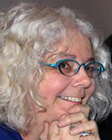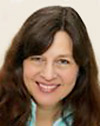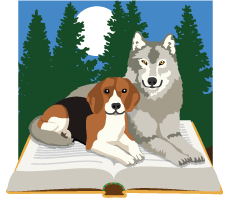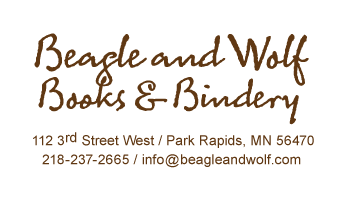|
| |
|
 |
|
|
|
|
 Jen Jen |
|

|
 |
Gutenberg’s Apprentice*
by Alix Christie
Typically, the eldest population of every generation resents or rejects the new technology that comes along. We take it for granted now, but the printing press is a technology that was once frowned on. At one time, copies of books were done in longhand. Most books at that time were religious scripts and the copying of books was done by monks. This was a slow process and often suffered errors. You may be familiar with the name Johann Gutenberg, who was an inventor. He devised a revolutionary and, to some, blasphemous method of bookmaking: a machine he called a printing press. Gutenberg did not work in total isolation however. His funding came from a man named Johann Fust, a businessman, merchant, and bookseller. Fust took a young man named Peter Schoeffer under his wing, basically adopting him. When Peter is ordered by Fust to become Gutenberg's apprentice. Peter isn’t particularly pleased, but he becomes very invested in Gutenberg and his project: printing copies of the Holy Bible. This is historical fiction set in the late 1400s. Intertwined with the history and mechanics of the printing press is the history of the church.
|
| |
|

|
|
Splitting an Order*
by Ted Kooser
When I read poetry, I tend to nibble at a book for months, but I consumed Ted Kooser's book, Splitting an Order, in three days. The collection is dedicated to "absent friends" and I read it right after learning of the unexpected death of a 42 year old friend of mine. Reading Kooser's poems was one of the most powerful bits of healing I've ever experienced. This collection is an argument for poetry to be shelved in grief/spirituality and/or health & wellness. (Editor’s note: Jen’s review originally appeared in the November edition of the newsletter. We reprint it because the book was a recommendation at Night In.)
|
| |
|

|
|
Descent*
by Tim Johnston
Descent is a mystery/thriller, but has a lot of depth that would make it a good choice for a discussion. The Courtland family decides to take a family vacation in the Rocky Mountains the summer before their oldest child, daughter Caitlin, goes to college in the fall. While there, Caitlin and her brother Sean go up into the mountains one morning. Caitlin is a runner and Sean is keeping her company on his bike. Alone in the mountains, Sean is attacked and Caitlin kidnapped. Sean is reunited with his parents and the search for Caitlin begins. The title of this book is a play on words. Of course if you ascend a mountain, then you also have to descend it, but more than that, this family struggle plunges each family member into his or her own descent. Mom literally goes crazy, Dad makes very poor decisions, and brother Sean basically runs away. This is a page turner and yet, I think it could generate some great issues to discuss.
|
| |
|

|
|
The Road Back to Sweetgrass*
by
Linda Legarde Grover
This book was written by Duluth author Linda Legarde Grover. Sweetgrass in this book is used as an anchor of cultural identity. It is a plant used in an Ojibwe ceremonial bag. The book is set in northern Minnesota, and follows three American Indian women from the 1970s to now. While there’s a definite progression of events that make up the story, it isn’t told in a traditional way. It’s not just that the book moves around in time, it’s more that the reader gets a sense that time is layered rather than linear and the reader is presented with snatches of the characters’ lives. Also even if you’ve never had frybread, you’re going to find yourself craving it. This would be an excellent potluck book. We get to know Margie and Theresa and Dale Ann as they navigate their way through young adulthood. They struggle with love, jealousy, and betrayal. One finds love in an unexpected and not necessarily condoned place. The story floats between a fictional Indian reservation and the white world, and not all of it is pleasant. This is one of those books where I struggle to tell you too much about it because I don’t want to give it away. But I’ll tell you this, I think issues of society and women, the importance of our own family and community histories, race relations, the historical arc of social norms in Minnesota and the U.S., family, and friendship are all relevant, discussable points in this book.
*Night In recommendation
|
| |
|
|
|
|
|
|
|
 Sally Sally |
|
 |
|
|
|
|
|

|
|
Wolf Winter*
by Cecelia Ekbäck
Wolf Winter is set in Lappland in 1717. Maija and her family have swapped their home in Finland for an uncle’s home in Lappland and moved there to make a new beginning. Gradually, they discover the uncle wasn’t completely honest about what they were getting into. Soon after arriving, Maija’s daughter discovers the body of a neighbor on the nearby mountain. Other neighbors want to believe that the man’s death was the result of a wolf attack, but Maija is convinced that it was a murder. As she learns more about the man who died, she learns about other tragedies and betrayals in the community.
The seasons change, and a “wolf winter,” the harshest season in years, descends. As they struggle to survive, the neighbors are forced to come together. Slowly Maija discovers the secrets they are hiding, and her own secrets are revealed.
Although there is a murder in the book, I wouldn’t call it a mystery in the usual sense. The characters are carefully drawn, and Maija is a strong woman. The setting of the books is nearly a character in itself, and the book is very atmospheric. The book gives readers an opportunity to enter a time and a society other than our own. The book is similar to Burial Rites in that it is set in Scandinavia a couple hundred years ago, and society is governed by the church in ways we don’t consider helpful. It is also similar to The Snow Child in that it is mysterious and atmospheric. |
| |
|

|
|
Mrs. Engels*
by Gavin McCrea
I read this book on the recommendation of a rep whose opinion I value. It’s not a book I would have picked up on my own, or thought I’d find interesting at all—but was I surprised!
Lizzie Burns, an illiterate Irish woman, was the long-time lover of Frederick Engels, the co-author of the Communist Manifesto. Little is known about her, but author McCrea has given her a voice. And what a voice it is! McCrea beautifully captures a spirit enduring despite working in the factories of Manchester during the horrible conditions of the Industrial Revolution, and a life filled with disillusionment, loss, and disappointment. Lizzie is a clandestine agent in political intrigue, unbeknownst to Engels. She struggles with the competing demands of love and security. Lizzie is a pragmatic dreamer, and utterly believable. By the way, Frederick Engels and Karl Marx don’t come off too well in this book.
And how did Lizzie Burns become Mrs. Engels? Ah, you’ll have to read the book to learn that!
|
| |
|

|
|
We are Not Ourselves*
by Matthew Thomas
We are Not Ourselves is the epic story of three generations in the Tumulty family. Eileen was raised by Irish immigrant parents, both alcoholics, in Queens. Her home life was chaotic, and she was her parents’ caretaker from an early age. Eileen dreams of a calmer life in a better neighborhood, preferably in a house in the suburbs. When she meets Ed Leary, she thinks he’s her ticket to the American Dream. This, of course, is the story of many Americans in the years after World War II. Ed is a neuroscientist who doesn’t share Eileen’s dreams. Once he gets his doctorate, he’s content as a faculty member at a mediocre college. He’s passionate about his research and teaching, and content with a less-than wonderful home in a deteriorating neighborhood. While Eileen struggles to change his mind, Ed seems to be making a psychological shift. It’s not a spoiler to say that he has early-onset Alzheimer’s. Both Eileen and Ed’s dreams fade as they deal with a new reality. And yet, despite all this or perhaps because of it, the gritty and powerful love Ed and Eileen have for each other is a redemptive force in their difficult lives. The book is a tribute to resiliency and the power of loving and being loved, but not in a sappy, sentimental way. |
| |
|

|
|
The Conversation*
by Angelo Volandes
This book is non-fiction, and it’s about THE conversation--not the one you have you’re your kids about sex, but the one about end-of-life care. The author is a physician who has come to believe that the dark side of modern medicine is the ability to prolong life, sometimes after it has lost meaning. He believes all of us need to consider and discuss such issues as: what things are important to us in our lives; what medical treatments might be too much if we were unable to do the things we enjoy; the fears we have about illness and medical care; the spiritual beliefs that guide us; whether we wish to die at home or in another setting; and which we value more—length of life or quality of life.
The author tells the stories of seven seriously ill people, some of whom had The Conversation and some who did not. These stories are told with great sensitivity. The author even includes a section about a crisis with his father’s health, and how he experiences the difference between responding as a physician and as a son.
Does it sound like a depressing book? It’s not. Rather, it offers much to consider and discuss. I think it’s time for me and my husband to have The Conversation. |
| |
|

|
|
Section 60*
by Robert Poole
Our country is currently engaged in the longest war in our history. Unlike other wars, this one barely registers with most of us. No battles are being fought on our soil, no one is being drafted; there are no war taxes, no rationing, and no sense of shared sacrifice.
The one exception to this is Section 60 of Arlington National Cemetery, where more than 900 women and men have been buried in recent years, casualties of the war in Iraq and Afghanistan. The author begins the book on Memorial Day, the busiest day of the year at Arlington when thousands of families, friends, and comrades visit.
After this introduction, the author uses Section 60 as a window onto our latest war. He tells the stories of some of the people buried there. Stories of courage and of sacrifice. Stories of posttraumatic stress disorder and of suicide. Stories of family and friends who find a way to continue living after the deaths of loved ones. One story is that of Judy Meikle, a 61 year old woman who visits the grave of Benjamin Kopp, a twenty-one year old Army Ranger who died in 2009 as a result of combat injuries in Afghanistan. Meikle never met Kopp, but she received his heart after his death, and is visiting out of respect and gratitude. There are stories of veterans who buried their children at Arlington. While the content of the book is serious, it ends with these words from The Iliad: “He grieves, he weeps, but then his tears are through. The Fates have given mortals hearts that can endure.”
*Night In recommendation
|
| |
|
|
|
|
|
| |
|
|
|
|

Ann |
|
 |
|
Lila
by Marilynne Robinson
Lila was born into a life of poverty. As a toddler, she was rescued from neglect and raised by a young Drifter by the name of Doll.
Though life was difficult, there was a definite bond between Lila and Doll. Eventually, Lila found herself homeless and alone. She wandered into a church in the small town of Gilead, Iowa and ended up marrying the minister, John Ames. The book is the story of Lila's struggle to integrate her old and new lives. It is also about trust, acceptance, and much more. Seeing life from Lila's point of view helped me to better understand what it might be like to grow up in poverty and living on the fringes of society. I found Lila to be a very thought provoking story, beautifully told. I'm glad that I read it.
|
| |
|
|
|
|
|
|
|

Gail |
|
 |
|
|
|
|
| |

|
|
A Place in the Woods
by Helen Hoover
This book, which was written in 1969, has become a Minnesota classic. It's the story of a couple from Chicago who leave the fast life behind and buy a dilapidated old cabin in northern Minnesota. All kinds of problems confront them: bears, fire, keeping warm, a car wreck, and no money. They survive, convinced that this is the place for them. The unusual thing to me was that they were neither hunters nor fishermen. They were many miles from the nearest town so all their food had to come in on the mail truck! |
| |
|
 |
|
Americanah
by Chimamanda Ngozi Adichie
Ifemelu and Obinze are young and in love when they leave military ruled Nigeria for the west. Ifemelu heads for America, where she discovers for the first time what it means to be black. America is closed to Obinze because of 9-11. He ends up as an undocumented person and leads a very dangerous life in London. The story goes back and forth between the two. Will Ifemelu and Obinze come together again? This award-winning author leaves us in suspense to the very end. |
| |
|

|
|
Sum it Up
by Pat Summitt
Having played basketball in high school (many years back when they still played half court ball in Iowa), I enjoyed this book very much. You don't have to know basketball to relish this story. Pat Summitt is one of the greatest coaches of all time. She won at the Olympics and won a number of NCAA championships with her team at the University of Tennessee. Pat not only had trials and tribulations with her teams but growing up poor in Tennessee was a test, too. Now she faces the biggest test of all. She has been diagnosed with Alzheimer's Disease. |
| |
|

|
|
Sacred Wilderness
by Susan Power
In this book, which is set in St. Paul, Minnesota, the author tells Native American stories both traditional and contemporary. Among the interesting characters is Gladys Swan and her cat Zhigaag. Gladys touches us with her wise solutions to life's problems. The book is a great read.
|
| |
|
|
|
|
|
|
|

Hannah |
|
 |
|
|
|
|
| |
 |
|
A Discovery of Witches
by Deborah Harkness
What if instead of a teenager moving to Forkes, she was a professor at Yale on a sabbatical, doing work in Oxford? Oh, and what if she were a witch? Deborah Harkness is a professor of history who has published non-fiction in the past. This is the first in the All Souls Trilogy: Penguin is the publisher, and it's a New York Times Bestseller. It's page-turning fun. (I thought it started a little slow, but I bet you'll be hooked by the time the handsome vampire takes her to a yoga class complete with vampires, witches, and daemons.)
|
| |
|

|
|
Shadow of Night
by
Deborah Harkness
This, the second book in the All Souls Trilogy, goes way beyond fun. Most of the book is set in Tudor England and historic Prague. It's the sequel to A Discovery of Witches and continues the same wonderful story telling, but it also takes us to a different time with remarkable success. You meet everyone from Queen Elizabeth to mad alchemists, and explore 1590s fashions, inventions, and etiquette. |
| |
|

|
|
The Book of Life
by
Deborah Harkness
We're back in the present. There are a few new characters, and more about my favorite: the witch's house. The house really is a character: it feels like something from Harry Potter. The plot lines from the previous books in the series weave together and build to a satisfying conclusion. You also get an interesting exposure to contemporary academia and science. |
| |
|
|
|
|
|
| |
|
|
|
|

Iain |
|

|
|
Ready Player One
by Ernest Cline
I thoroughly enjoyed reading this book. Ready Player One follows the story of Wade, a young man who participates in a competition inside the virtual world of OASIS to find a mysterious object known as Halliday's Egg. The prize is a fortune, but some of the other players will do anything, even kill, to find the Egg first. Filled to the brim with adventure and 80's pop culture / video game references, this book is one for any science fiction fan to read. |
| |
|
|
|
|
|
| |
|
|
|
|

Liz
|
|

|
|
Longbourn
by Jo Baker
This is an interesting and enjoyable read, especially if you like Jane Austen's books. The story is a retelling of Pride and Prejudice from the point of view of the servants. Those unnamed people who are just part of the background in Pride and Prejudice are the main characters in Longbourn, with a whole world of their own, and their own stories which are just as important as those of their masters and mistresses. It really adds a whole new dimension to the good old classic! |
| |
|
|
|
|
|
| |
|
|
|
|

LouAnn |
|
 |
|
Fates and Furies
by Lauren Groff
I allowed myself one novel between semesters as a full-time teacher and full-time graduate student, and I’m so glad I chose this one. It was President Obama’s favorite book of 2015, a National Book Award Finalist, a finalist for the National Book Critics Circle Award, and tops many lists of Best Books of 2015. I wanted to know more.
This is a novel in two parts. The first section, Fates, is told mainly from the perspective of the husband in the long marriage that’s examined here. Lotto (Lancelot) Satterwhite, is a failed actor and golden boy who becomes a successful playwright. Writers love books about writers, and I am no exception (Plus there are lots of references to literature and mythology. Total LouAnn bait). My favorite parts of this section were the descriptions of Satterwhite’s plays. Groff has basically written several plays within a novel—no small feat—and I felt as though I had been to the performances.
The second section of the book, Furies, revisits many of the earlier scenes from the book, but this time from the perspective of Lotto’s wife Mathilde. Many secrets are revealed in this section that change the reader’s perceptions in interesting ways.
This is a very hard book to summarize. It is a deep examination of a long marriage, of the life of an artist, and of human nature and what we do for love. It is unstinting in its look at the raw emotions that drive us. It subtly examines privilege and what lies behind it, and the interdependent nature of marriage. I can’t go into more detail without giving away too much, but you owe it to yourself to read Fates and Furies.
|
|
— page top —
|
|



 Jen
Jen Sally
Sally





